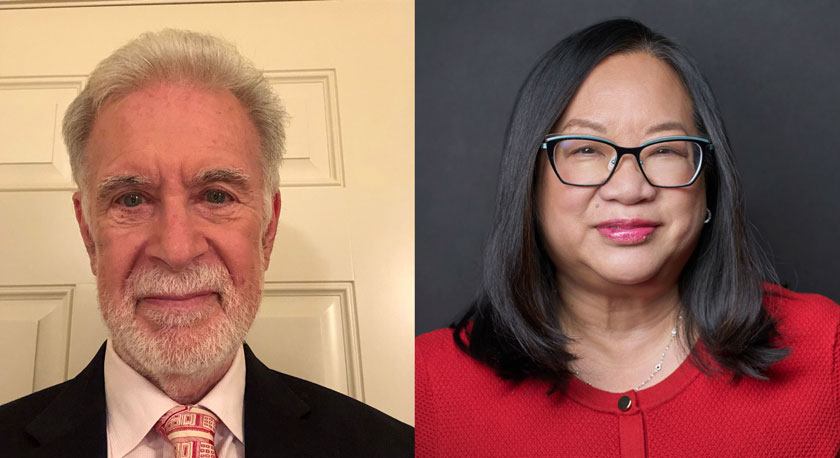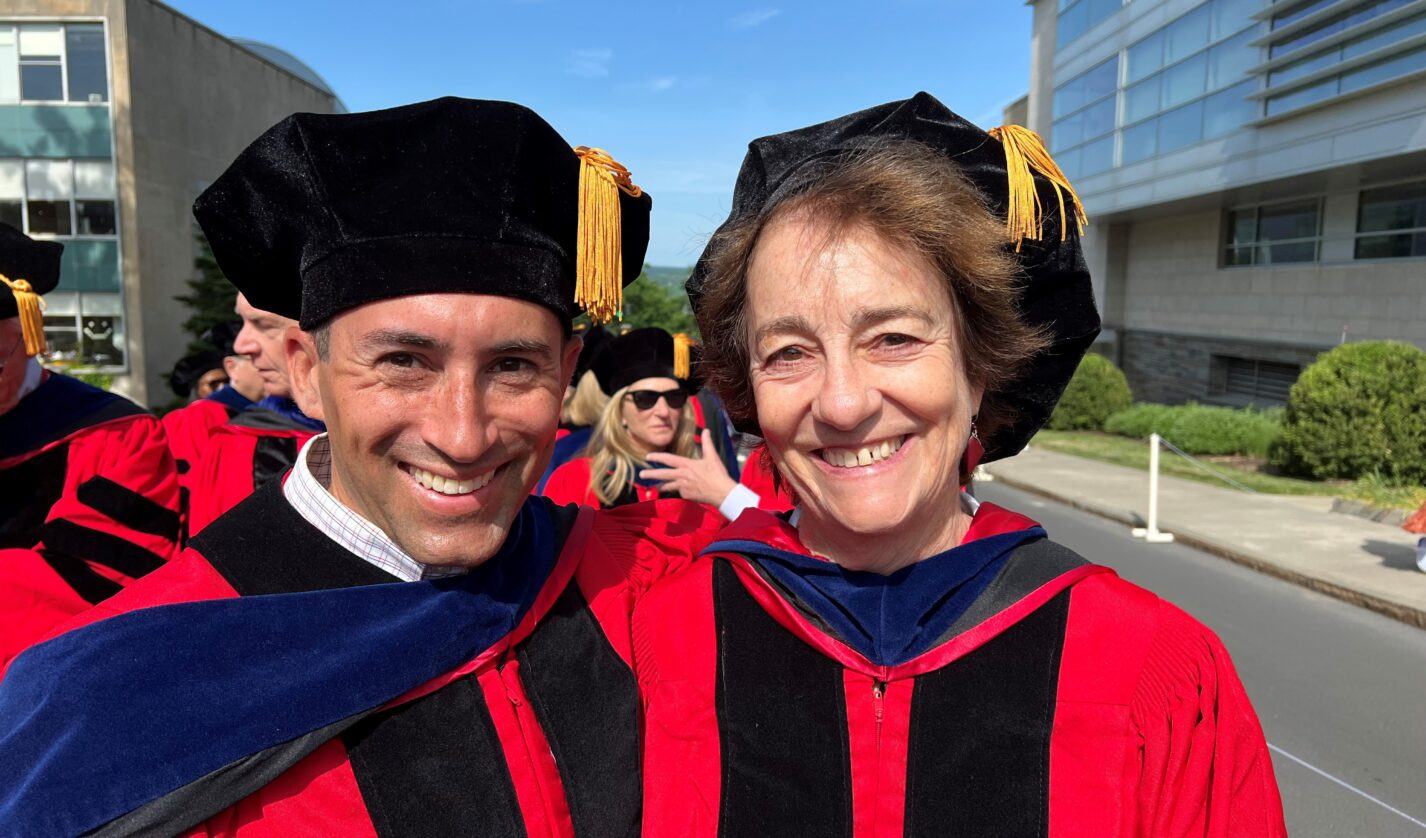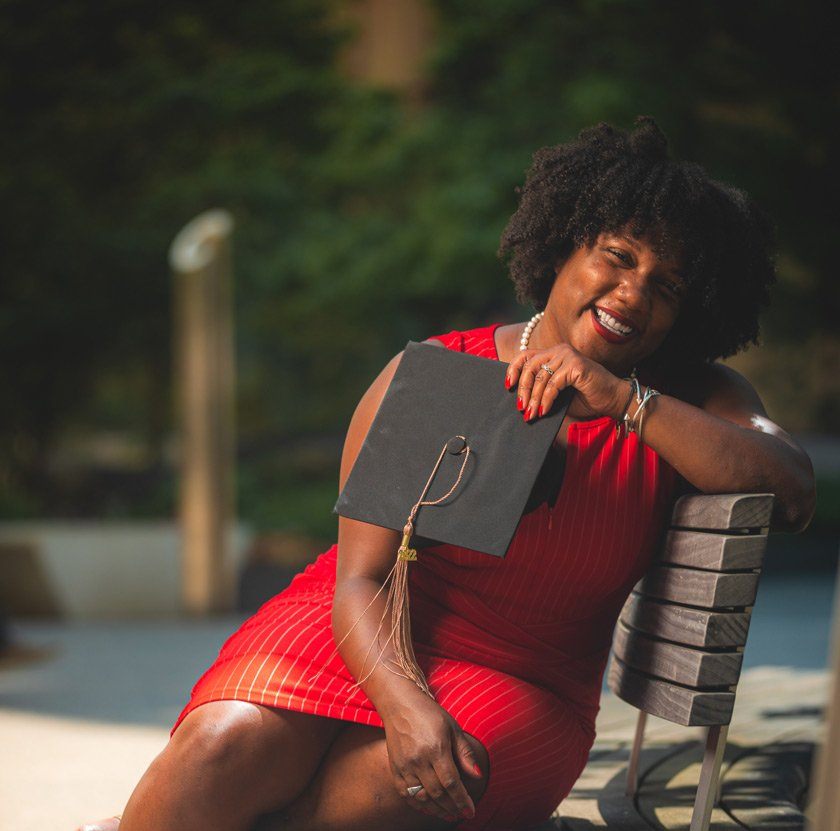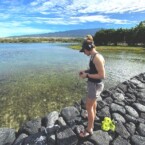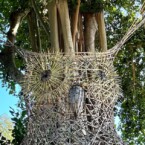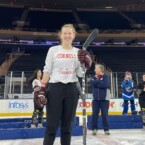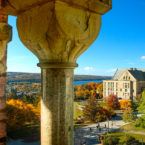Frank Dawson ’72 and Zachary Carter ’72 sat down to talk about Zachary’s Cornell volunteerism and experience.
Frank Dawson ’72: Cornell is a big place. What do you consider your communities? And how did you find your corner of the university?
Zachary Carter ’72: Well, it’s interesting. It happened naturally, particularly for Cornell’s African American and Latino students, in the fall of 1968. I think that it was the largest class of Black and Latino students that had ever been brought to the university. It was large enough that we could at least have the sense that we were a community unto ourselves—for better or for worse, mostly for the better. My closest friends are the friendships I made at Cornell in my freshman year that have lasted to this day. Because we were a socially self-sufficient group, there wasn’t much incentive to reach outside and make broader connections.
As I try to counsel young people entering college these days, the advice I give is a result of things I didn’t do at Cornell—reach outside my comfort zone. When we were at Cornell, they won the NCAA Championships in hockey. I never attended a single hockey game, even though Ken Dryden, who is now a long-past Hall of Famer, was our goalie. I pretty much did at Cornell, recreationally and socially, what I would have done if I had just stayed home in Washington, D.C. Now, because of the wonderful folks that were in our group, that was a great experience. We had a great time, and it certainly didn’t hurt me in terms of what I learned in the classroom. I benefited from the extraordinary experiences that we had an opportunity to share during a pretty fraught time in that period of this country’s history. Civil rights, the Vietnam War protests, and all those things kind of converged at the same time while we were there. I have no regrets and look back on that time with really fond memories.
Wonderful. You are the first person that I met at Cornell. When we went to the dorm, I didn’t see anyone who looked like me. We went into the cafeteria, and I think your dad was sitting there. I said, “Mind if I sit here?” and that’s how it all began. We both are connected after all these years later to Cornell, in service, to the students, faculty, and everyone else at Cornell. So, what is it that binds you to the university?
I have always been grateful for how the university made an earnest attempt to understand what it took to accommodate what was then the largest class ever of Black and Latino students and certainly the largest group of students of color that were drawn from inner cities around the country. When I say “making an earnest attempt,” I don’t expect that, on issues of race and social justice, any institution is going to get things completely right. There are going to be mistakes that are made. But I never had concerns about the sincerity of the intentions of folks who tried to relate to us. We weren’t shy about making our concerns known to the university, but ultimately, they were receptive.
We had students who had difficulty adjusting to being on a campus that was isolated from urban America. We were a fraction of the 15,000 students on campus; there were barely a hundred of us. That led to bona fide mental health issues, and we expressed the need for the university to try to provide resources for folks. They ultimately responded, which was a product of demonstrations we held, shown in the major documentary film Agents of Change. Not every university responded the way Cornell did to those kinds of requests, if not demands, for services for this new population. The fact that the Willard Straight Hall takeover is something that the university actually celebrates is just remarkable. I don’t think that has been replicated in any other university that I know of from experiences I’ve shared with people who went to different schools during the same time that we did. The university’s leadership, having engaged with the students during an extraordinarily tense and high-profile incident in the way they did, required a career sacrifice on the part of that leadership. When people at San Francisco State were celebrated for the most ham-handed approach to responding to student demonstrations and activism on their campus, our leadership got punished for that great sacrifice. I will always appreciate what former Presidents Perkins and Corson did during that period.
Amen. Amen. What was it like for people in your community as a member of the Class of 1972?
I guess it depends on what community. As I said initially, many of us define community narrowly because it was. It was comfortable. It was a critical mass of students that made us feel like that. We were a school within a school. The first Alpha Phi Alpha chapter was founded at Cornell decades before we came. There were no Black fraternities at Cornell—in part because I think there was a belief, sometimes stated but mostly unstated, that it would undermine our cohesion as a community of students. We didn’t need that to go to fraternity parties; we were one big fraternity. It was a co-ed fraternity. It was a community in every sense. And I think people felt a mutual sense of support being part of that community.
We have to talk about your illustrious career, which, you know, we are very, very proud of. Let’s talk a little bit about the work that you’ve done and continue to do and how that also binds you to the university.
Sure. As for contemplating what I would do after graduating from Cornell, I have to say that until probably my junior year, I didn’t have much of a clue. I was always attracted to public service and government because I grew up in Washington, D.C. D.C. is a company town, and the company is the federal government. When you were in elementary school, nobody asked who your parents worked for because everybody worked for the federal government. The only issue is what agency and in what capacity. Most of our parents, like my own, were not college graduates. They generally worked in the federal government in clerical civil service capacities.
Following his service in World War II, my father worked for the Pentagon in the defense printing plant for the Department of the Air Force for 35 years. Both my father and my mother kind of set the tone for me in terms of dedication to public service because I always regard them as having served in the highest level of public service, which is unpaid public service.
After my father worked a full shift at the Pentagon, he still made time to be active in and ultimately lead our local civic association. Either my mom or my dad was president of our local civic association, probably for about 20 years. Nobody else would take the job, so they were responsible for getting enhanced police protection in our community, getting the potholes fixed, getting garbage picked up timely, and dealing with all manner of issues. While my father was most active in the civic association system in D.C., my mother was active in our local PTA. She was the president of our elementary school PTA, junior high school PTA, and generally the president of the D.C. Congress of PTAs. At the same time, my father was president of the D.C. Federation of Civic Associations. My father had a GED, and my mom did a semester of teacher’s college on Howard’s campus, so working for the common good was something that I always just assumed I would do. It was something that I was attracted to, and it was modeled well for me by my parents.
I didn’t have in mind specifically practicing law. I kind of assumed that at some point I might go to law school and get a law degree. I knew that people in leadership positions and executive positions in government very often had law degrees, so I assumed that would be a handy thing to have. The litigation bug didn’t bite me until I was in law school and had an opportunity to work as a student intern for the Legal Aid Society in the Juvenile Rights Division. Under the Student Practice Act, I was able to try our cases in family court under the supervision of an admitted attorney. It gave my career a huge head start as I had more actual trial and hearing experience than many other young lawyers. By the time I graduated from law school, I was also a participant in the NYU Criminal Law Clinic, where I had a similar opportunity to represent adult offenders in Manhattan Criminal Court. That steered me in the direction of pursuing a career as a government lawyer.
You were appointed by President Clinton as the first U.S. Attorney for the Eastern District of New York.
Yeah, I was. I was the first African American U.S. Attorney for the Eastern District of New York.
I am proud to say that I didn’t do a terrible job at that. We probably led the league in African American U.S. Attorneys who followed me. My chief assistant was Loretta Lynch, who succeeded me as U.S. Attorney and ultimately became Attorney General of the United States. There have now been two, including myself, African American U.S. attorneys for the Eastern District of New York. I think that we succeeded in setting a tone there in which diversity was valued.
As a brand-new lawyer at the same office I ultimately headed up many years later when I graduated in ’75, I was appointed an Assistant U.S. Attorney for the Eastern District of New York. I prosecuted federal criminal cases, including NARCA. There were lots of narcotics cases, counterfeiting cases, Medicare fraud, some cases involving organized crime, and bank robberies, which were a major staple for the FBI back in the 1970s and early ’80s. One of the things that was a source of real satisfaction for me was that even the defendants under investigation, and those I was prosecuting, had more than grudging respect for me as an African American and regarded me as a role model. I treated them fairly. When there were defendants held in custody thinking about cooperating with the government, I would get permission from their lawyers for them to be ordered into my office for a chat. The attorneys trusted me and knew their clients wouldn’t suffer from having contact with me.
Those informal meetings resulted in some interesting relationships. There was a young man named Charles Williams, who was exactly my age when I was an Assistant U.S. Attorney. I think we were both 27 to 28 years old and had taken very different paths. I was a federal prosecutor, and he was a professional bank robber and a very charismatic figure. His nickname was Chaz; he led a group of African American bank robbers that went up and down the East Coast and throughout the Midwest. They got away with them for a very long time before the FBI tracked them down, and I worked together with the FBI to put together the case against them.
The reason it was so difficult to identify them was that they were extremely well-disciplined. They always wore ski masks. They usually had a robbery team of about three to four persons. One of the signatures of a Chaz bank robbery was that there was always somebody on the surveillance camera, in the middle of the floor, with a shotgun in one hand and a stopwatch, watching the timing precisely. There was a set number of minutes to drop whatever they had in their hands and get out before the police could respond. It was difficult to identify them until they made a slip-up in one of their robberies. They usually stole a car to use as a getaway car, but they always had an owned or rental car that they used to connect with the stolen car. At one point, when they were changing clothes and had removed their masks, somebody was looking out of an apartment window and identified them to the police. When one of them was caught, they were ultimately persuaded to cooperate with the government and testify against the other defendants.
Williams, who I tried and secured a conviction against, got 25 years for armed bank robbery, serving the lion’s share of that sentence. He got his undergraduate degree and his master’s degree inside. When he was released, he made a pretty good living representing hip-hop artists, including Lil’ Kim. Out of the blue, long after I’d left the U.S. Attorney’s Office and was in private practice, I got a call from Chaz Williams inviting me to participate in a documentary about his life that was being made by the American Gangster series on BET. He came down to my office with a film crew, and we just had a grand old time, swapping stories about the old. There was a mutual respect that I think we bonded over because of our connection of age, race, and respect for what our respective roles were.
My son worked on that project with you. Continuing in terms of your impact at Cornell, your service, and your continuing commitment, you were appointed by the mayor of New York to be the Corporate Counsel Lead Lawyer for the City of New York. Not a small thing for people of color, given the time we attended Cornell. There were difficult things we had to go through there as well. Yet you continue to offer your services to Cornell. Could you talk a little bit about your service to Cornell and its importance to you? Why do you love Cornell so much?
Cornell played an indispensable role in my personal development. Part of it was that they recruited a community of folks who became my friends and family. I haven’t been as active as I’d like to be in part because of the demands of the jobs that I’ve had. I expect to become more active now that I’m in retirement. I think it’s important to try to give back to the university in any way we can because history doesn’t necessarily repeat itself, but it does rhyme. A lot of what we went through in the late ’60s and early ’70s at Cornell can provide some insights for students who are currently at Cornell. To the extent that alumni can return and help guide students through the adjustment period of being at a university like Cornell, I think that it’s a great occasion to give back and share whatever insights we might have.
Hmm! Any advice you would give to someone wanting to be more engaged with the university?
Wow! I think an occasion for becoming re-engaged is around Reunion. It is a time when you can reconnect with those people in your class who volunteer themselves. People like you who’ve been incredibly active in organizing class functions and reunions and getting us reconnected with each other. We’re trying to discover ways of giving back to the university, both in terms of raising funds but also in any other way that we can be supportive.
Can you talk a little bit about the committees that you have served on at Cornell beyond Reunion?
That has been my primary participation. The greatest part of the contribution for me has been the opportunity to come back to speak to students and the exchange of experiences in terms of what it’s like to be a student now versus the many years since we graduated.
The conversations that we have with students are so important. They’re just like sponges, soaking it up, and it’s so meaningful to them. We faced some difficulties; some people just don’t want to look back on that time. What might you say to folks as to why it is important for us to continue with the university?
It is very satisfying to talk to current students and to hear about what they’re experiencing. To some extent, things haven’t changed all that much, but in other respects, things have changed a great deal. We didn’t have social media or cell phones. It was a different world when we were at Cornell. Sharing those experiences enriches me and benefits the students, so it’s a win-win.
Our community, as you talked about earlier, was kind of narrow. But at the same time, it was an experience we will cherish and never forget. I get asked that so many times: “Oh, why do you love the university?” It’s because not everyone had the kind of experience that we had as a group with one another. And, unfortunately, we’re now at a time where we’re starting to lose people.
That is right and, sadly, inevitable. You mentioned students’ reactions when they find out that you were a member of our class or that class range and likely participated in the Willard Straight Hall takeover. But my guess is that students feel liberated to engage with us about that because the university encourages it. There are places that would not celebrate what has been retrospectively characterized as the armed takeover of a campus building. We know that’s not an accurate depiction because the arms were brought in substantially after the demonstration began. However, that depiction was spread all over by magazine covers and papers throughout the United States. Lots of universities would want to put those images in the rear-view mirror, but that was not the case at Cornell. That’s what draws me back to the university, what makes it a special place—not a perfect place, but a special place in terms of their earnest attempt to connect with us and remain connected to us over the years.
Just for the record, I have to mention the name of our unofficial group. When we students came together, we were the Recondos. We continue to be Recondos today and forever.
Absolutely. I had mentioned before that we did not have fraternities, but we have to admit that we kind of concocted our own—a group of freshmen who used to play ball and party together. We ultimately decided to rent. There were 15 of us, Black and Latinos, in an 11-bedroom house at 117 Dewitt Place. Recondo Manor is what we called it. The term Recondo came from one of our classmates, Kossouth Snyder ’72, who was from Battle Creek, Michigan, and apparently, there was some paramilitary organization called the Recondo. It got us through a lot of the difficulties of the time, a core group of folks who participated in the Willard Straight Hall occupation. We reinforced and supported each other going through that ordeal. It was a real bonding experience.
I think that differentiates us from any of the other classes in terms of as freshmen—that we went through that experience with other Black and Latino students. I’ll always say it’s one of the most important episodes of my life.
No question. As I think about it now, it’s one of the reasons why our freshmen weren’t particularly deferential to the upperclassmen. Given ordinary circumstances, they would be dictating the demonstrations and timing. But no, we had a critical mass of students who had their own ideas about how things should happen. We’re the important voices in determining how we, a Black and Brown student body, would react to things happening on campus and things that we thought needed to change.
The last question I’ll ask is, who has inspired you, or mentored you? Or who do you look up to?
Well, at Cornell, the person I think I probably admired most was James Turner, who was the head of the Africana Studies and Research Center. He was an extraordinarily influential figure: incredibly articulate, a gifted scholar, and had a great sense of history. You know, he was always the person who could describe past and current events and put them in a workable context that was comprehensible. He was just a really compelling figure, and as somebody who was so reliable in his support and leadership, he was a human anchor for us.
Zach Carter, my brother from another mother. How great that Cornell brought us all together. There are many more stories. I’ll continue to be on different boards at Cornell to give back what was given to us. So, Zachary Carter, thank you so much for this conversation, and we will talk again soon. Take care!
Alumni activities:
- Cornell Black Alumni Association
- Class of 1972 Class Council
Professional:
- City of New York, Corporation Counsel
- Eastern District of New York, United States Attorney
- U.S. Magistrate Judge
- City of New York, Criminal Court Judge
Undergraduate activities:
- Quill and Dagger

